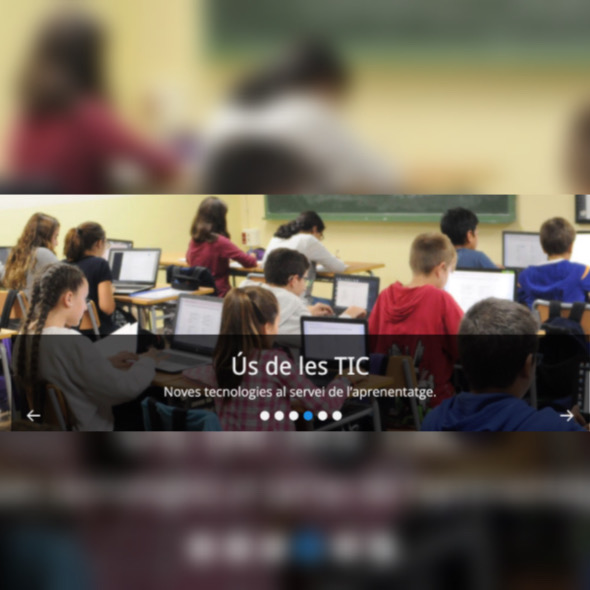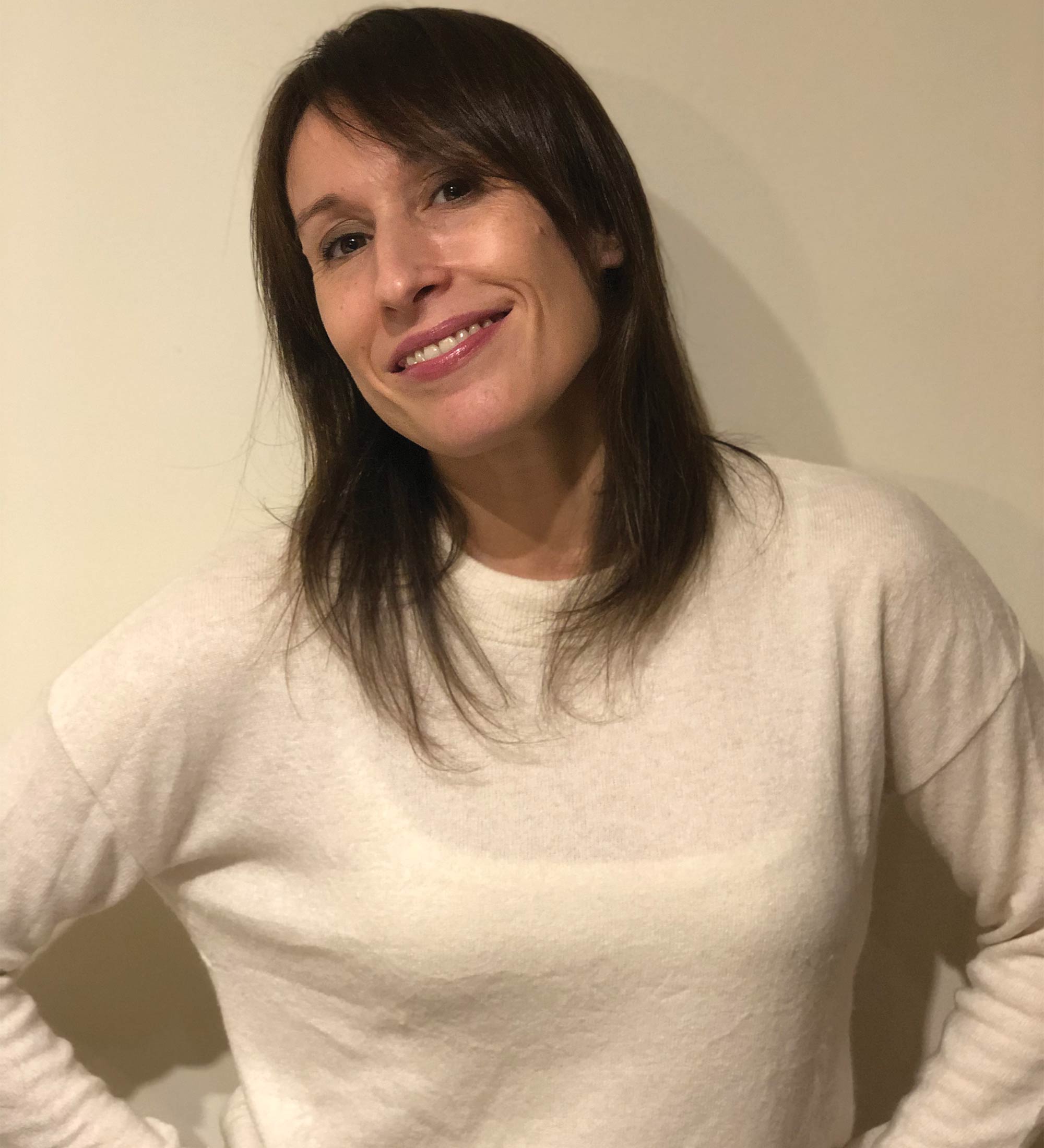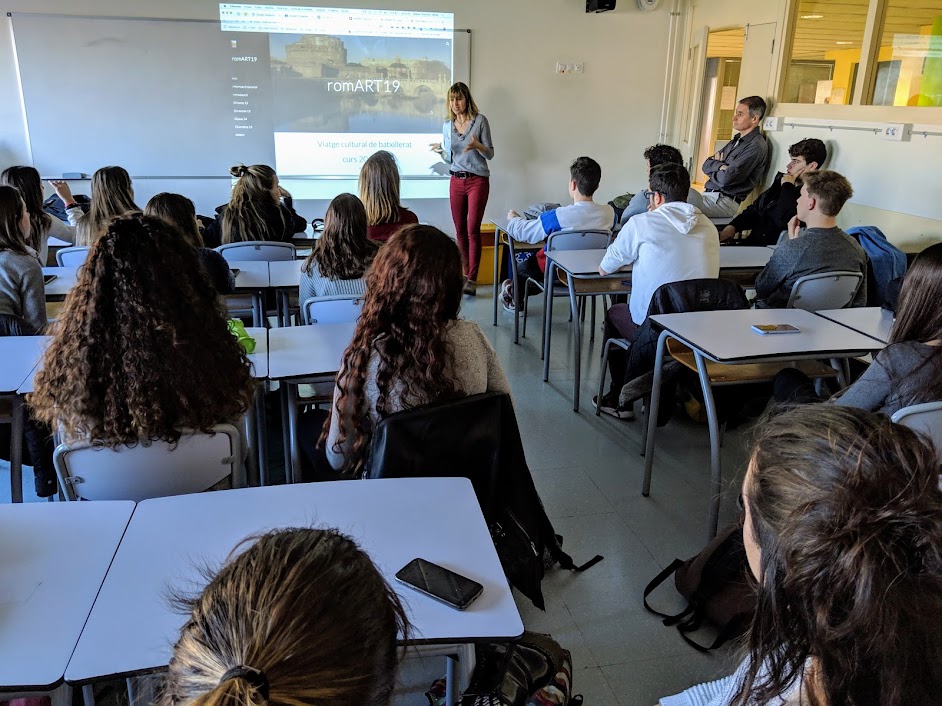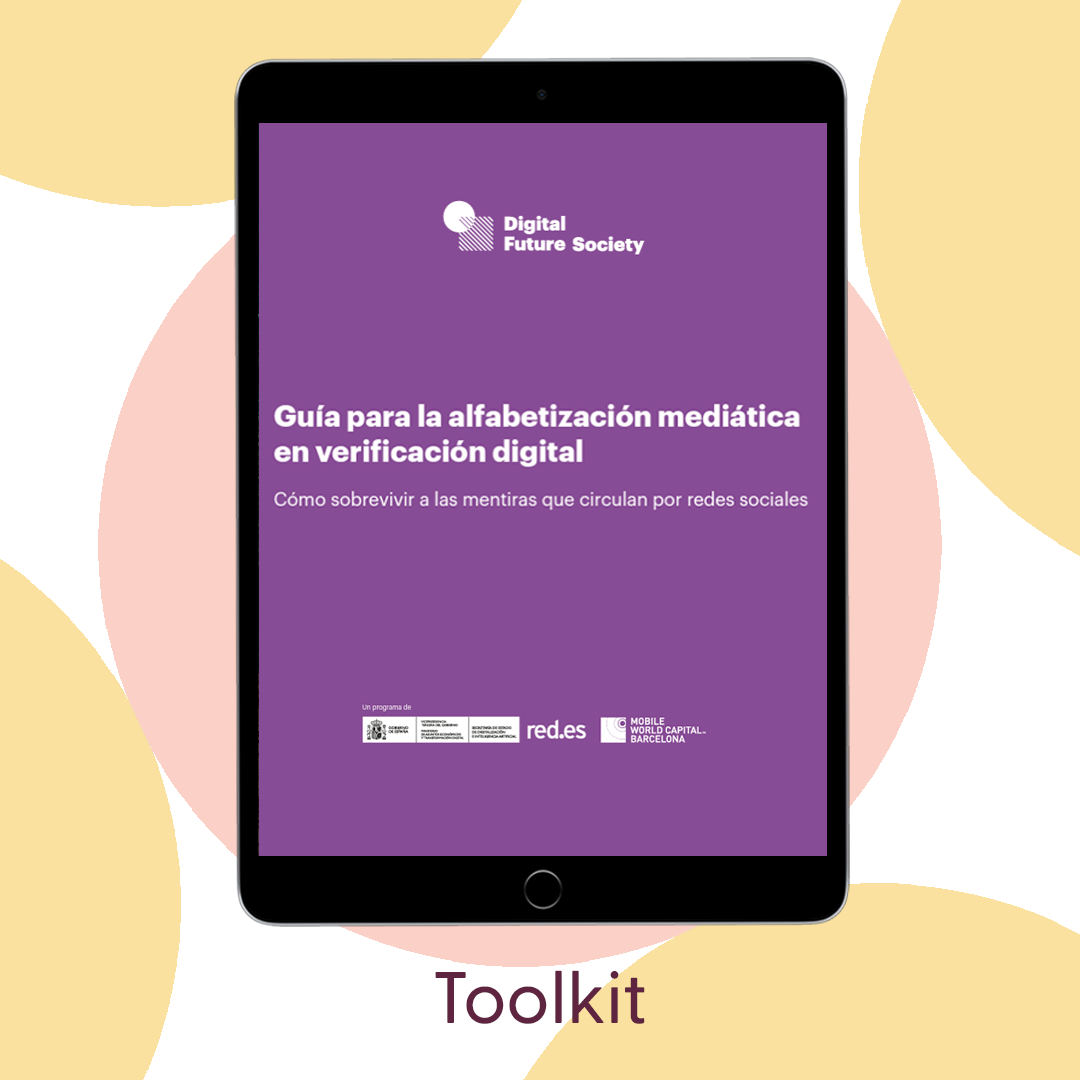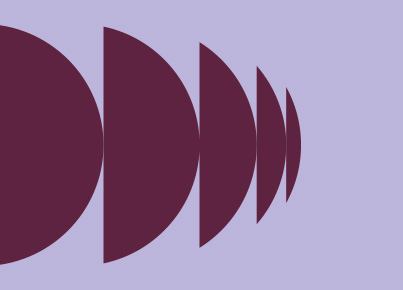Media Literacy
Classroom Experience
Fake News workshops among peers
Institut Josep Puig I Cadafalch, Mataró, Barcelona
Using a didactic guide and digital tools, students conducted research on the phenomenon of Fake News, and then they collaboratively developed some disinformation workshops that were later used to give all the other students of the school a training on the subject.
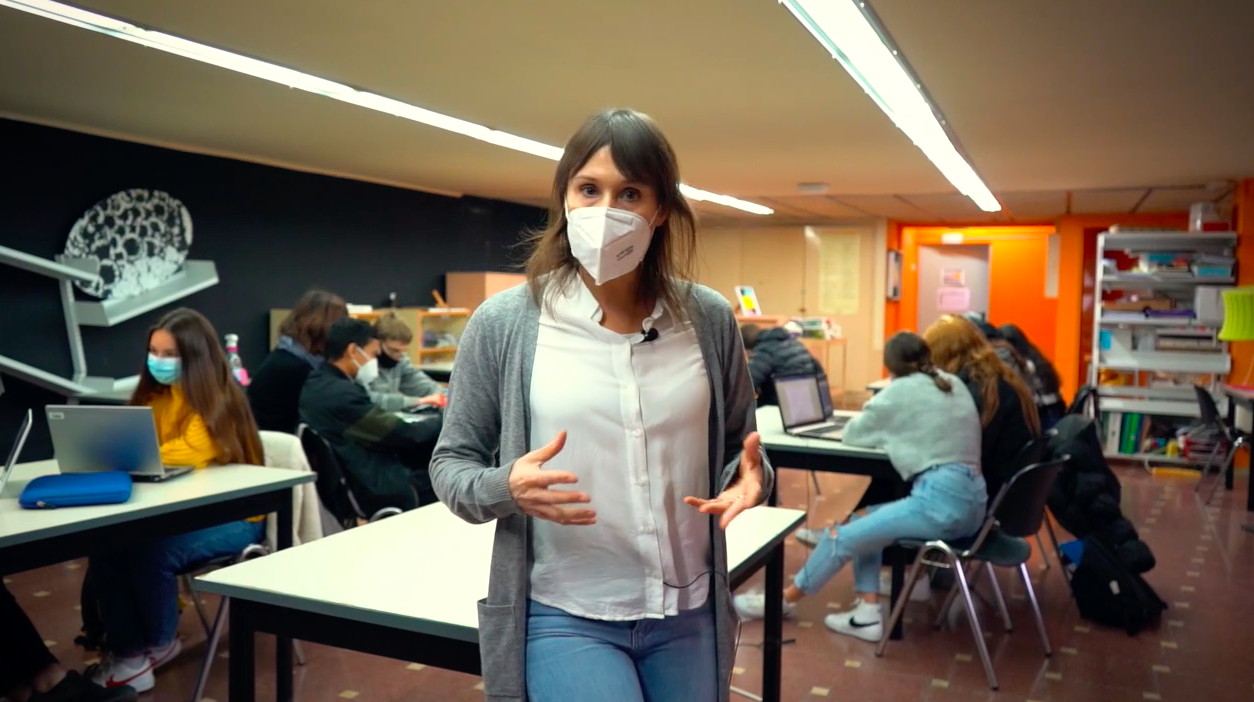

Context
Our school, together with other German, Swedish, and French schools, is part of Erasmus+ “Digital Media Awareness” project. Its main objective is to provide students with tools to improve their ICT competences and at the same time to become aware of the dangers behind them.
Highlights
Important subjects like Fake News, digital identity, cyberbullying, and digital footprint will be worked on for a period of 2 years.
The students at Institut Josep Puig i Cadafalch use computers in every class. We were one of the first schools to join the 1x1 program from the Ministry of Education.
We are strongly committed to providing students with autonomy over the new technologies, and that is why important subjects such as disinformation and digital health need to be addressed in class.
During the project students worked in an interdisciplinary way for a week, using all the language periods.
When in the classroom, they always work applying their competencences and in heterogeneous groups, so they can help one another and solve problems together.
Objectives
Didactic sequence
1
![]()
Session 1: Contextualizing.
Students watch a video of the journalist Clara Jiménez and they anwer some questions to discuss it.
2
![]()
Session 2: Doing research.
Students in groups study the phenomenon of disinformation and share their results.
3
![]()
Session 3: Making it visible.
Students create audiovisual and graphic material that summarizes clearly the main ideas of the results reached in the previous session.
4
![]()
Session 4: Analyzing media
As a conclusion, students compare the quantity and diversity of information surrounding a current piece of news.
5
![]()
Session 5: Commandments to fight fake news.
Applying what was learnt about information in the previous step, students create a script and an audiovisual piece with some basic rules or tips to be a critical and well-informed spectator in the current information age.
6
![]()
Session 6: "Fake You" Digital Breakout
Fake You is a digital breakout (or escape room) where students can implement what they have learnt in a fun way, while getting ideas to create their own Fake News workshop to teach the youngest ones. They have 1 hour to break into the room and unlock the box!
7
![]()
Session 7: At the workshop!
Students in groups have to organize a practical training workshop to introduce the phenomenon of disinformation to younger school students.
Assessment and conclusions
Successes
Students' knowledge and awareness of disinformation, basic terminology, typology, and implicit dangers.
Knowledge and incorporation of actual verification tools in our academic and social environment.
Students' development of a deeper critical sense.
To improve
Assessment on the project's impact. The Google Form we created was too simple. It should be improved and extended to get more information.
Students' co-evaluation within the same group should be better integrated.
Communication competence. Public speech.
Both students’ and teachers' assessment of the project is very positive: by working in a practical way, we were able to learn at a deep level about a really important and decisive subject in the current sociopolitical context.
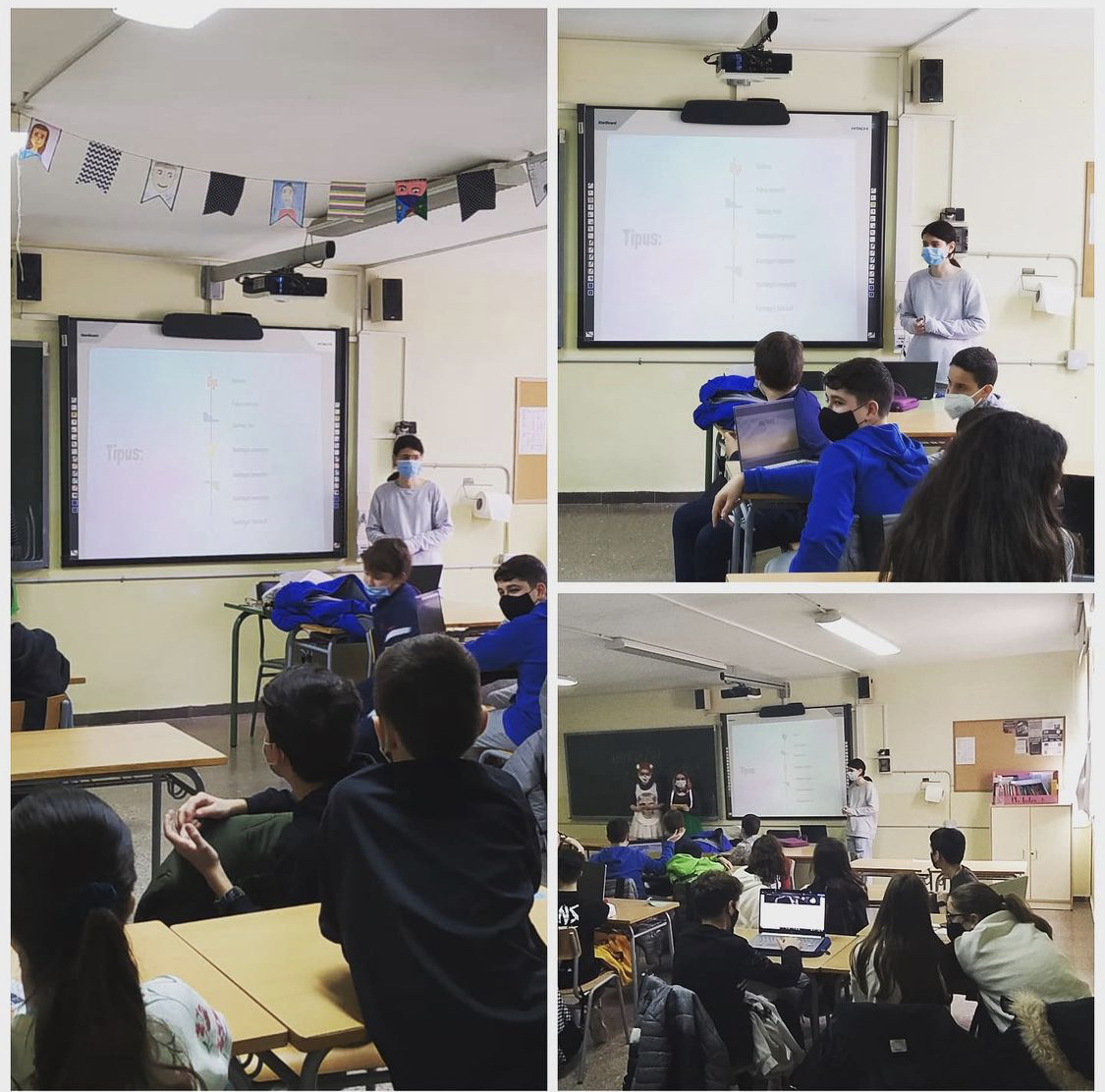
Bring this experience to your classroom
Tips to adapt this experience
1
Small groups
Groups should have no more than 4 people, ideally 3.
2
Mixed groups
Form heterogeneous groups that have in particular a student with good leadership and communication skills.
3
Elaborate a rubric jointly
Before starting with the students' workshops, they need to share their views on what a good workshop should be like (not too long or manipulative; varied and flexible; not too theoretical; learning by doing; etc.). Based on these ideas, they create a rubric together to evaluate the workshops.
4
Revise all materials
Teachers should advise and guide students all along the process; the created materials should be revised and help provided to achieve the main goal: get younger students to understand the phenomenon and learn to verify information in a simpler way.
Links and resources
Inspiring webs
Fake News examples

